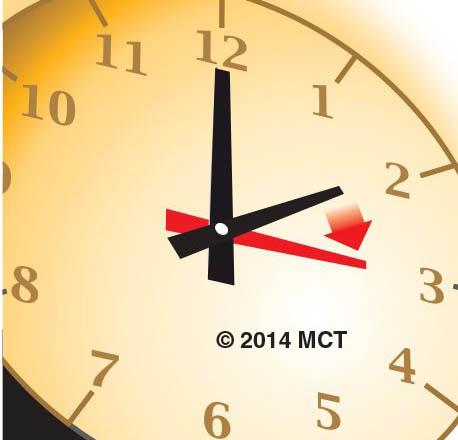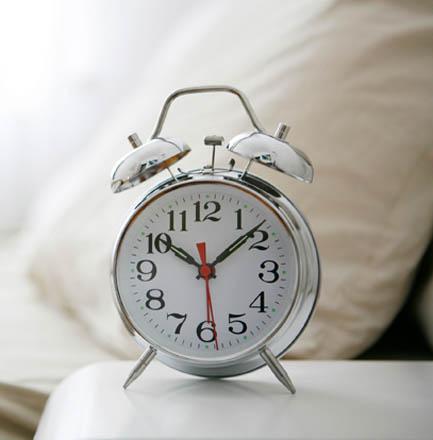You are here
Daylight Saving Time linked to heart attacks — study
By Reuters - Mar 30,2014 - Last updated at Mar 30,2014

WASHINGTON – Switching over to Daylight Saving Time, and losing one hour of sleep, raised the risk of having a heart attack the following Monday by 25 per cent, compared to other Mondays during the year, according to a new US study released on Saturday.
By contrast, heart attack risk fell 21 per cent later in the year, on the Tuesday after the clock was returned to standard time, and people got an extra hour’s sleep.
The not-so-subtle impact of moving the clock forward and backward was seen in a comparison of hospital admissions from a database of non-federal Michigan hospitals. It examined admissions before the start of daylight saving time and the Monday immediately after, for four consecutive years.
In general, heart attacks historically occur most often on Monday mornings, maybe due to the stress of starting a new work week and inherent changes in our sleep-wake cycle, said Dr Amneet Sandhu, a cardiology fellow at the University of Colorado in Denver who led the study.
“With daylight saving time, all of this is compounded by one less hour of sleep,” said Sandhu, who presented his findings at the annual scientific sessions of the American College of Cardiology in Washington.
A link between lack of sleep and heart attacks has been seen in previous studies. But Sandhu said experts still don’t have a clear understanding of why people are so sensitive to sleep-wake cycles.
“Our study suggests that sudden, even small changes in sleep could have detrimental effects,” he said.
Sandhu examined about 42,000 hospital admissions in Michigan, and found that an average of 32 patients had heart attacks on any given Monday. But on the Monday immediately after springing the clock forward, there were an average of eight additional heart attacks, he said.
The overall number of heart attacks for the full week after daylight saving time didn’t change, just the number on that first Monday. The number then dropped off the other days of the week.
People who are already vulnerable to heart disease may be at greater risk right after sudden time changes, said Sandhu, who added that hospital staffing should perhaps be increased on the Monday after clocks are set forward.
“If we can identify days when there may be surges in heart attacks, we can be ready to better care for our patients,” he said.
The clock typically moves ahead in the spring, so that evenings have more daylight and mornings have less, and returns to standard time in the fall. Daylight Saving Time was widely adopted during World War I to save energy, but some critics have questioned whether it really does so and whether it is still needed.
Researchers cited limitations to the study, noting it was restricted to one state and heart attacks that required artery-opening procedures, such as stents. The study therefore excluded patients who died prior to hospital admission or intervention.
Related Articles
Catching up on lost sleep over weekends may help people keep their weight down, according to a study in South Korea.Not getting enough sleep
Timing meals relative to your own body clock, rather than to the time of a day, may affect how lean you are, researchers suggest. Studi
A fitful night’s sleep and a habit of daytime catnapping may be an early-warning sign of Alzheimer’s dementia, according to new research con














